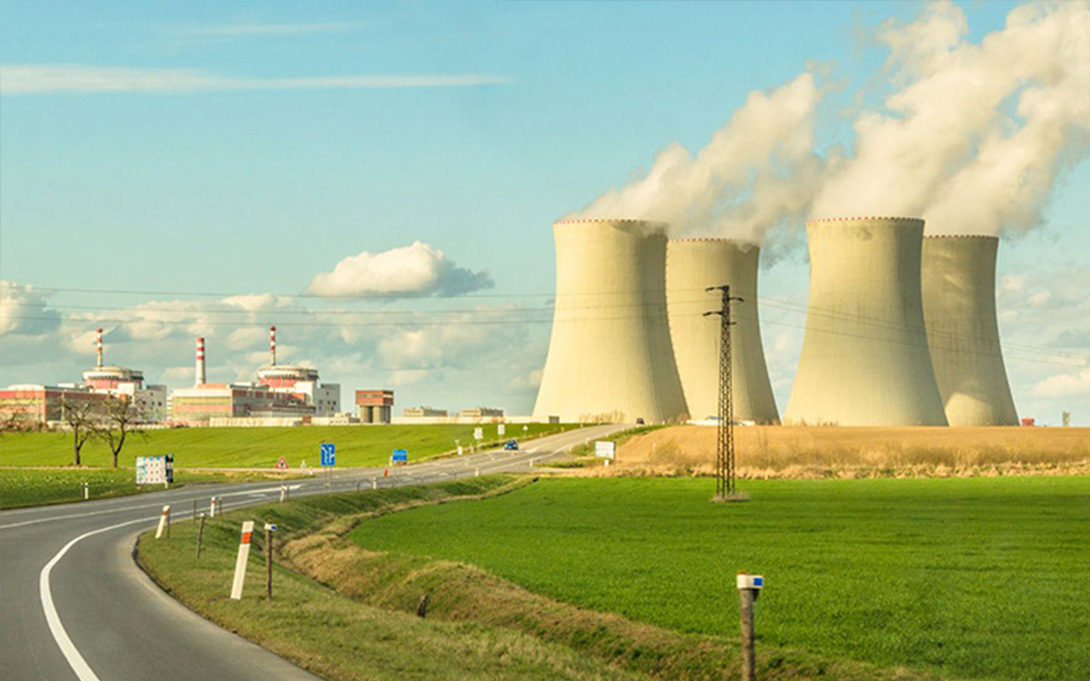
The Graham Sustainability Institute’s Carbon Neutrality Acceleration Program (CNAP) announced $1,160,000 in funding for six new faculty research projects. CNAP is a multi-year, multimillion-dollar program created in 2020 with a $5 million gift from anonymous donors. Including these grants, CNAP has a 20-project portfolio totaling nearly $3 million. The Michigan Memorial Phoenix Fund provided additional funding this round to support nuclear-related projects.
The new CNAP projects continue to draw on the breadth of expertise across U-M. They tackle a range of carbon neutrality topics and augment the CNAP portfolio, which addresses six critical technological and social decarbonization opportunities: energy storage; capturing, converting, and storing carbon; changing public opinion and behavior; ensuring an equitable and inclusive transition; material and process innovation; and transportation and alternative fuels.
Shobita Parthasarathy, Ford School professor and faculty director of the Science, Technology, and Pubic Policy (STPP) program, will be co-principal investigator (Co-PI) looking at public acceptance of nuclear energy, working with PI Denia Djokić from Nuclear Engineering and Radiological Sciences, along with STPP managing director Molly Kleinman and Barbara Peitsch, also of Nuclear Engineering and Radiological Sciences.
“As the CNAP portfolio grows, so does its impact,” said Jennifer Haverkamp, Graham Family Director and Ford School professor of practice. “Our new projects are ambitious and solutions-oriented. Each one has the potential to propel decarbonization quickly toward a far more sustainable — and equitable — future.”
As society transitions to a decarbonized economy, behavioral and policy interventions can help ensure equity. The project, "Looking to the Past to Encourage Responsible Governance, Public Acceptance of Nuclear Energy," will explore governance frameworks that could help advanced nuclear energy to ameliorate — rather than exacerbate — social inequities and environmental injustices. A key dimension of the project is training students across disciplines to think holistically about the potential impacts of emerging technologies. It is a part of STPP's ongoing Technology Assessment Project (TAP), which examines the implications of emerging technologies and uses these insights to develop better technology policies.
“It’s important for engineers and policymakers to establish a cultural norm of getting comfortable with all facets of social, political, economic, equity, and ethical impacts of the things that we build,” said Djokic. “Only through good-faith engagement with public concerns will we be able to develop technologies and public policies that are aligned with democratic values and build public trust.”
“This project is a step in this direction, to ensure that emerging nuclear energy technologies and decarbonization goals more broadly are guided by robust policies that work for everyone.”
More on the project:
Nuclear energy has been a major provider of carbon-free baseload electricity for decades, and many argue that a stable, carbon-free grid is technically impossible without it. Advanced nuclear technologies, which will be coming online within the decade, promise to significantly reduce historical challenges and risks, such as radioactive waste, power plant safety, weapons proliferation, and high infrastructure costs. However, significant public hesitancy about the widespread adoption of this technology remains, and it is not yet clear what policies and processes can most effectively address emerging public concerns.
This project team posits that public acceptance depends on responsible governance of advanced nuclear energy, which cannot come about without examination of the complex sociopolitical, ethical, and equity dimensions of this emerging energy technology. The researchers aim to fill that knowledge gap, producing useful recommendations for policymakers and stakeholders by analyzing analogical case studies of technologies of comparable impact and function. This novel approach, developed through the TAP, has already been applied successfully to facial recognition technologies, COVID-19 vaccines, and large language models.
The project follows last year’s rededication of the Michigan Memorial Phoenix Project, setting a unique and significant precedent for research “devoted to the peaceful, useful, and beneficial applications and implications of nuclear science and technology for the welfare of the human race.” The researchers expect their findings will help build trust through illuminating concerns about potential social inequities and harms and recommending governance approaches to address these. Their work contributes to an emerging branch within the field and has the potential to impact and widely inform future research, development, siting, regulatory, and even, potentially, reparative policies around nuclear energy technology.
This article was written by the Graham Sustainability Institute.
More news from the Ford School